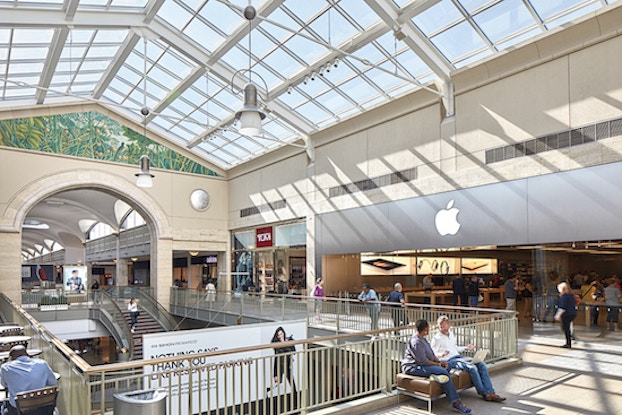There once was a time when retailers thrived on real-world interactions with customers: a handshake here, a conversation there. But in today’s digital landscape, interactions between businesses and clients often only happen online and semi-anonymously.
Yet, that doesn’t mean the demand for meaningful exchanges between brands and customers has disappeared — many companies that made a name for themselves taking historically analog businesses (like cosmetics or groceries) and reimagining them as online companies are now finding ways to incorporate some of that old Main Street spirit into their business models. Here are three ways digital disruptors are keeping it real.

The shop-within-a-shop
Co-founded by Katia Beauchamp in 2010, Birchbox is a direct-to-consumer beauty company that made a name for itself online by helping to pioneer the “subscription box” trend that’s now a popular distribution model for all kinds of consumer goods — from shaving sets to wine.

But despite (or perhaps because of) the company’s digital beginnings, its next stage of growth is focused squarely on the physical world. In a recent interview with CO—, Beauchamp outlined Birchbox’s expansion offline to big retail. The company has launched branded shops in 12 of Walgreens’ 9,560 stores, and it’s done so because, despite the growth of its direct-to-consumer model, many beauty shoppers still crave real-world cosmetic shopping experiences.
“We are laser-focused on reaching the casual beauty and grooming consumer, who we believe represents a massive opportunity in both the U.S. and global markets,” Beauchamp told CO—. “We're evolving what we offer — and where and how we offer it — to become a forever part of our customers' lives.”

Meet me at the mall
Birchbox isn’t the only digital-first company using old-school tactics to expand its customer base: Digital natives plan to open 850 physical stores in the next five years, according to a report from real estate firm JLL. And lots of these stores are opening up in a place that many believed was on the verge of extinction: the local mall.
Why the shift? Turns out there are some purchases, like perfume or pineapple, that are better made in person, where we can use all of our senses before making a decision.
[See which online brands might soon pop up at a mall near you.]

IRL connections
Brandless, which sells a variety of food and household products, is also taking its offerings into the real world, but in a different way than most. The brand combines the business model of an e-commerce company with the feel of a community center.
“Brandless is a community, first and foremost,” Tina Sharkey, who co-founded Brandless in 2017, told CO— in a recent interview. “So that community at times is virtual, at times is physical, because our community starts with our team, but then very quickly extends to the people that we get to connect, communicate, and share with.”
There are Brandless meetups, where groups like new parents, vegans or professionals connect over a shared belief in the Brandless mission statement: “Better stuff, fewer dollars.” Customers are encouraged to share recipes and food hacks on the company’s blog and social media pages, and emails from the company encourage customer feedback and testimonials.
We're evolving what we offer — and where and how we offer it — to become a forever part of our customers' lives.
Katia Beauchamp, co-founder and CEO, Birchbox
Keeping it real
How the move toward real-world experiences affects the bottom line of digital disruptors like Brandless and Birchbox is yet to be seen. But for those who feel nostalgic for the days of neighborly conversations with shopkeepers — or who simply wish to put a face to the companies they give their money to — the return to yesteryear’s marketing and sales tactics may certainly be a welcome trend. Find out more about the latest business disruptions and trends on our Good Company page.
CO— aims to bring you inspiration from leading respected experts. However, before making any business decision, you should consult a professional who can advise you based on your individual situation.
CO—is committed to helping you start, run and grow your small business. Learn more about the benefits of small business membership in the U.S. Chamber of Commerce, here.




